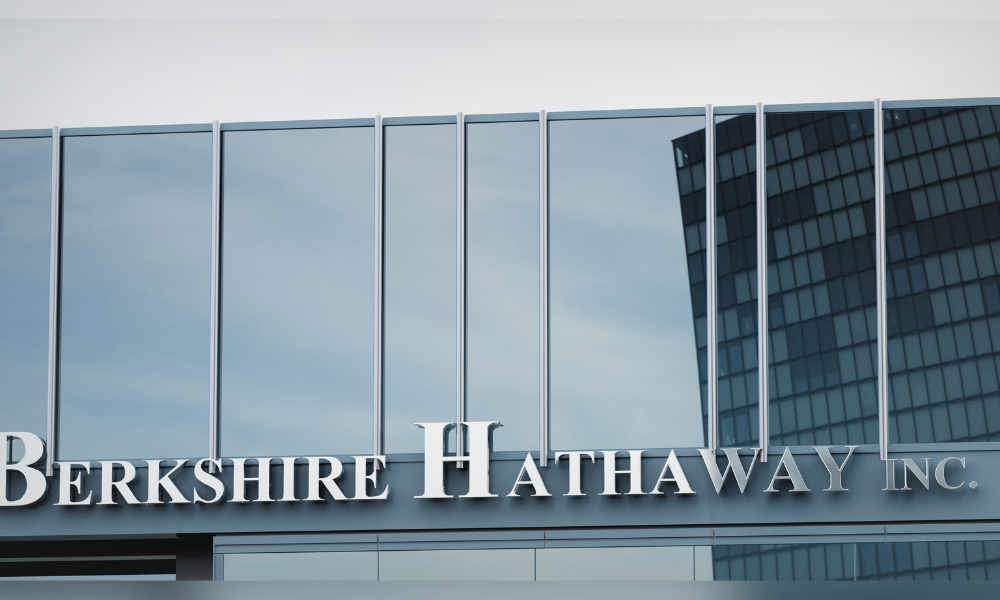Kraft Heinz writedown and Buffett’s exit raise questions about Berkshire’s future market direction

A US$3.8bn writedown on Berkshire Hathaway’s stake in Kraft Heinz has triggered renewed concern from investors, as the conglomerate reported weaker earnings, halted share repurchases, and faced market unease over Warren Buffett’s planned departure.
The Kraft Heinz charge marked Berkshire’s second writedown on the food and beverage company and reduced the carrying value of its 27.4 percent stake to US8.4bn from over US17bn in 2017, as reported by Bloomberg.
The food giant, known for Kraft Mac & Cheese, has seen its stock drop more than 10 percent this year amid consumer shifts toward private-label and healthier options.
According to LSEG data cited by Reuters, Kraft Heinz remains the eighth-largest holding in Berkshire’s portfolio by market value.
Berkshire disclosed the impairment charge alongside a 3.79 percent year-over-year decline in second-quarter operating earnings to US11.16bn, down from US11.6bn, as reported by CTV News.
The conglomerate’s insurance underwriting income before taxes fell nearly 11 percent to US2.53bn, down from US2.84bn. Net income for the quarter dropped 59 percent to US12.37bn compared to the same period last year.
For the first six months of 2025, Berkshire posted USUS20.8bn in operating earnings, an 8.8 percent decrease from 2024.
In response, Berkshire’s shares slipped, with Class A shares down more than 3 percent and Class B shares falling as much as 3.4 percent to US457.00 on Monday, their lowest level since February, according to Bloomberg.
Shares are now trailing the S&P 500 despite gaining about 2 percent in 2025.
As per Reuters, investor reaction may reflect continued doubts over the company’s direction without Buffett and Charlie Munger, who died in 2023 at age 99.
Buffett, who has led Berkshire for over 50 years, announced in May he would step down as CEO by year-end.
Greg Abel, vice chair of non-insurance operations, is expected to assume leadership.
Russ Mould, investment director at AJ Bell, said the continued decline in share price—despite a broader US market rally—“perhaps suggest[s] that investors are yet to convince themselves that Berkshire Hathaway will be the same without Warren Buffett and Charlie Munger.”
Berkshire has not repurchased shares since May and has now forgone buybacks for four straight quarters, even as the stock dropped over 12 percent between Buffett’s retirement announcement and last Friday’s close, as reported by Bloomberg.
Its cash pile fell to US344bn between May and July from US347bn at the annual meeting on May 3, ending a run of 11 consecutive quarters of cash accumulation.
Mould said the investment vehicle’s decision to halt cash growth could present longer-term challenges.
The company also flagged concerns about macroeconomic conditions.
In its earnings statement, Berkshire wrote that it remains “unable to reliably predict the nature, timing or magnitude of the potential economic consequences” tied to trade tensions and geopolitical risks.
According to CTV News, the company specifically warned that tariff policies under US President Donald Trump continue to create an uncertain outlook.
Revenue at apparel and toy brands Fruit of the Loom, Garan, and Jazwares declined 11.7 percent, 10.1 percent, and 38.5 percent, respectively, due in part to order and shipment delays linked to global trade policies.
Despite the broader weakness, some Berkshire divisions saw gains.
BNSF Railway reported an 11.5 percent rise in earnings before taxes, while energy subsidiary BHE recorded an 18 percent increase in net income, as per CTV News.
In a contrasting move to recent retrenchments, Berkshire increased its position in satellite radio firm Sirius XM.
As reported by CNBC, the conglomerate purchased 5 million additional shares through separate transactions last Thursday, Friday, and Monday, bringing its total stake to 124.8 million shares — about 37 percent of the company — worth an estimated US2.6bn.
Berkshire began investing in Sirius XM after Liberty Media consolidated its tracking stocks with the radio company and spun off the Atlanta Braves, which Berkshire also holds.
The latest Sirius XM share purchases followed a disappointing second-quarter earnings report, which saw the stock drop nearly 8 percent.
The company cited continued weakness in the advertising market amid economic uncertainty.
CNBC noted that Sirius XM shares are down 4 percent year-to-date after falling 58 percent in 2024.
Analysts at Evercore ISI commented that “2025 continues to be a transition year, though we believe management continues to execute well, and we don’t see a meaningful shift in fundamentals.”
Buffett has not publicly discussed the Sirius XM investment, and CNBC said it remains unclear whether the position was initiated by him or by investment deputies Ted Weschler or Todd Combs.


